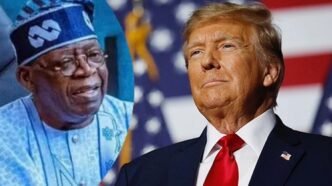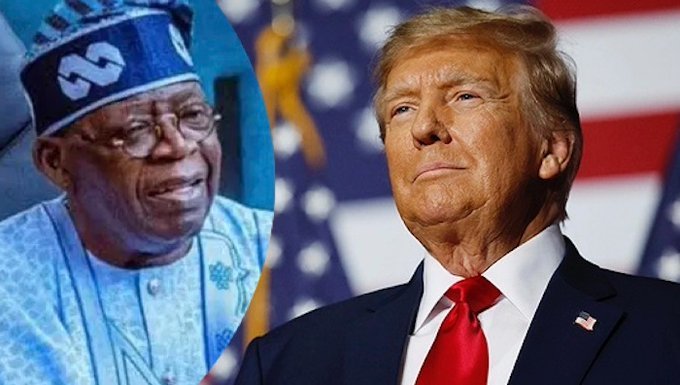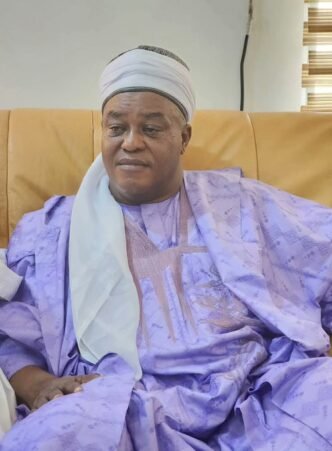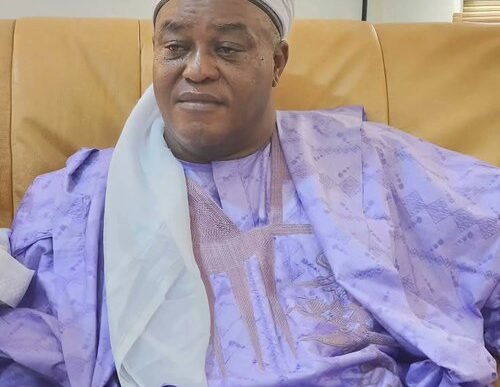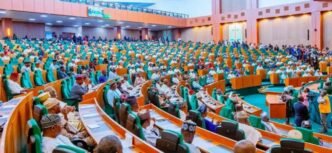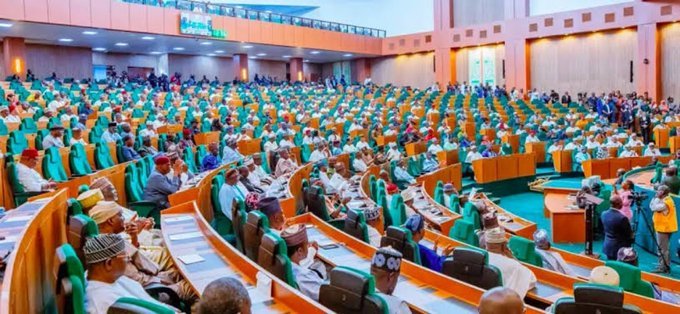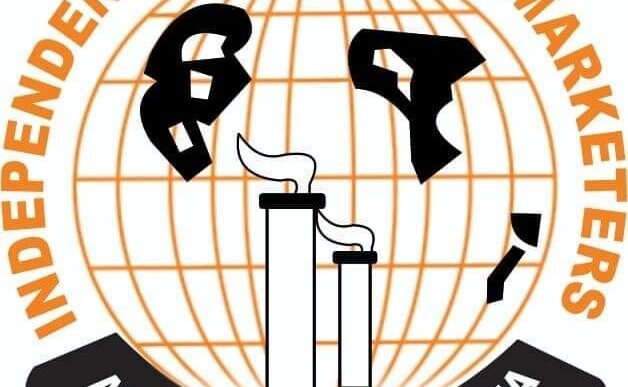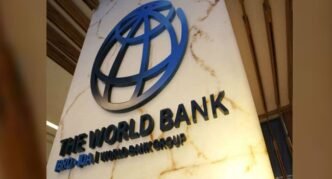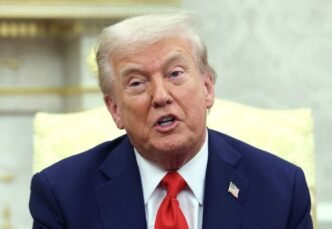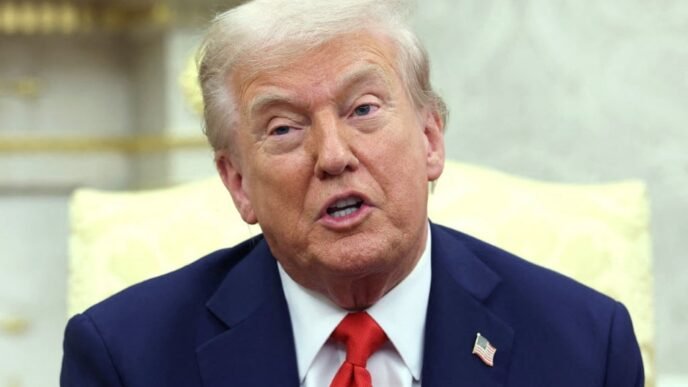President Bola Ahmed Tinubu has responded strongly to comments made by former United States President Donald Trump, who recently described Nigeria as a “country of particular concern” over alleged religious persecution. Tinubu, in a statement issued through his Special Adviser on Media and Publicity, Ajuri Ngelale, insisted that Nigeria remains a secular state guided by the principles of religious freedom, equality, and mutual respect.
The President emphasized that Nigeria’s Constitution provides for freedom of thought, conscience, and religion, guaranteeing that citizens are free to practice any faith of their choice without fear of discrimination or government interference.
“Nigeria does not tolerate religious persecution in any form. Our Constitution guarantees the right of every citizen to worship freely without fear or discrimination. No group or individual is targeted based on faith in our country,” Tinubu stated.
Trump’s Controversial Remark
The controversy began earlier this week when former U.S. President Donald Trump revisited the issue of religious freedom in Nigeria. In a post shared on his social media platform, Trump praised his previous administration for designating Nigeria as a “country of particular concern” in 2020, citing what he called “widespread persecution of Christians and religious minorities.”
Trump argued that the situation in Nigeria has not improved and urged Washington to reclassify the country accordingly. The statement immediately sparked widespread debate within Nigeria and across international human rights circles.
Nigeria had been listed as a “country of particular concern” under the Trump administration, but President Joe Biden’s administration removed the country from the list in November 2021, citing “improvements in interfaith relations and ongoing government engagement.”
Trump’s renewed comment was interpreted by many as an attempt to re-ignite the issue for political reasons ahead of his expected re-election campaign rhetoric focusing on global religious freedom.
Tinubu’s Defense: “We Are a Secular Nation”
Responding to Trump’s statement, Tinubu reaffirmed that Nigeria’s secular identity remains intact and non-negotiable. He said his administration is committed to ensuring equality and fairness among all citizens regardless of religion, ethnicity, or region.
“Nigeria is a multi-religious and multicultural nation. The unity of this country is built on mutual respect and understanding among diverse faith communities,” the statement read. “Our government continues to support policies that strengthen interfaith dialogue and national cohesion.”
Ajuri Ngelale, speaking on behalf of the President, emphasized that most of the violence often attributed to religious persecution in Nigeria is actually rooted in criminal, economic, and ethnic conflicts, not state-sponsored religious oppression.
He cited examples of security challenges in the Middle Belt and northern regions where clashes between farmers and herders are frequently mischaracterized as religious, even though they often stem from land disputes, climate change, and criminal banditry.
“It is misleading to classify Nigeria as a nation where religion is persecuted. Our government protects all faith groups equally,” Ngelale added.
Constitutional and Legal Safeguards
Nigeria’s 1999 Constitution (as amended) clearly guarantees the freedom of religion. Section 38 states:
“Every person shall be entitled to freedom of thought, conscience and religion, including freedom to change his religion or belief, and freedom to manifest and propagate his religion or belief in worship, teaching, practice and observance.”
Legal experts say this provision forms the bedrock of Nigeria’s secular democracy. Any attempt to label the country as a persecutor of any faith, they argue, contradicts both domestic law and decades of government policy that recognizes and protects diversity.
Nigeria’s Religious Landscape
Nigeria is Africa’s most populous country, home to an estimated 230 million people, with roughly 50% Muslims, 48% Christians, and 2% adherents of traditional beliefs, according to the Pew Research Center.
The country’s major cities — Lagos, Abuja, Kaduna, Kano, and Port Harcourt — are religiously mixed, with communities of Christians and Muslims coexisting, working, and doing business together.
Religious institutions also play a significant role in social development. Churches and mosques run thousands of schools, hospitals, and humanitarian programs across the country.
Religious Leaders React
The Christian Association of Nigeria (CAN) welcomed President Tinubu’s remarks, describing his response as timely and necessary to correct misconceptions abroad. However, the association urged the federal government to go beyond rhetoric by improving security in communities that have faced targeted attacks.
“We appreciate the President’s assurance that Nigeria does not persecute based on faith,” a CAN spokesperson said. “However, we continue to call for decisive security action to protect Christian and Muslim communities equally, especially in volatile regions.”
Similarly, the Nigerian Supreme Council for Islamic Affairs (NSCIA) commended the President’s statement and emphasized that violence in Nigeria should not be seen through a religious lens.
“Both Muslims and Christians have suffered from insecurity and violence. These acts are criminal, not religious,” the council said in a statement. “We must resist attempts to divide our nation along faith lines.”
Analysts View the Diplomatic Implications
Political analysts say Tinubu’s strong rebuttal serves a dual purpose — reaffirming Nigeria’s sovereignty and preserving its international image.
Dr. Hassan Ibrahim, a political scientist at Ahmadu Bello University, said the President’s response was necessary to protect Nigeria from external narratives that could harm its global reputation.
“Nigeria cannot afford to be branded as intolerant in today’s diplomatic climate,” Dr. Ibrahim said. “Such labels can affect foreign investment, trade, and bilateral cooperation, especially with Western nations.”
He added that Trump’s comments should be viewed in context, noting that the former U.S. president has a history of using religious freedom as a campaign theme to rally conservative Christian voters.
Human Rights and Global Context
The U.S. State Department’s designation of countries for “religious persecution” carries potential consequences, including sanctions, reduced development aid, and international stigma. Countries like Iran, North Korea, and Myanmar have faced such designations, which often come with diplomatic friction.
Nigeria’s inclusion on the list in 2020 strained its relationship with Washington and sparked outrage among government officials and religious groups. The Nigerian government at the time described the U.S. move as “ill-informed” and “politically motivated.”
In 2021, under the Biden administration, Nigeria was removed from the list, signaling improved diplomatic engagement.
Analysts now fear Trump’s renewed push could pressure U.S. policymakers to reconsider the classification — a move that might once again put Nigeria in a defensive position on the world stage.
Tinubu Calls for Unity and Vigilance
President Tinubu ended his statement with a call for unity among Nigerians. He urged citizens to reject divisive narratives that exploit religion for political gain, warning that external actors should not be allowed to define Nigeria’s internal realities.
“We are one people under God. Our diversity is our strength, not our weakness. No external force will define who we are or dictate our values,” he said.
He further assured Nigerians that his administration would continue to strengthen peacebuilding institutions, enhance interfaith education, and protect places of worship across the country.
“Every Nigerian deserves to live without fear, to worship freely, and to dream without discrimination. That is our commitment,” Tinubu concluded.
Summary
President Bola Tinubu’s response to Donald Trump’s claim marks Nigeria’s firm stance on religious freedom and national sovereignty. His administration insists that religious persecution is not part of Nigeria’s reality, emphasizing that the country’s security and social conflicts are rooted in economic and criminal challenges rather than religion.
As global attention refocuses on Nigeria’s religious dynamics, the government’s message is clear — Nigeria remains a secular democracy committed to equality, tolerance, and unity among its diverse faith communities.

